Major Power Relations
Your Present Location: PROGRAMS> Major Power Relations-
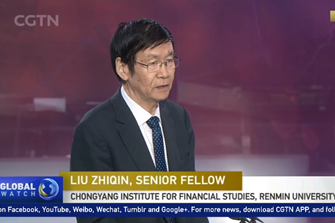
Expert on FedEx lawsuit against U.S. government
FedEx has filed a lawsuit against the U.S. government arguing Washington's new restrictions on exports and imports have created an "impossible burden" for delivery firms to monitor the origins of shipments to and from the United States. Liu Zhiqin, senior fellow at Chongyang Institute for Financial Studies of Renmin University of China, shared his views on the FedEx lawsuit.
2019-07-01 -
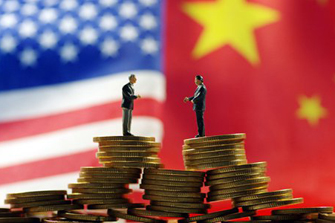
Zhao Minghao: Cautious optimism needed on Xi-Trump meeting in Osaka
Chinese President Xi Jinping and US President Donald Trump are set to meet on the sidelines of the G20 summit in Osaka, Japan, amid widespread expectations of the rendezvous cooling tensions ignited by a corrosive US-launched trade war.
2019-07-01 -
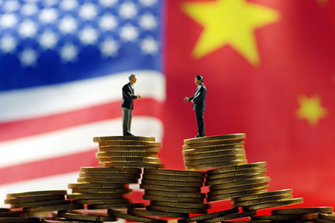
What to Expect from Xi-Trump Meeting in Osaka
US President Donald Trump and Chinese President Xi Jinping are expected to meet on the sidelines of the G20 summit in Osaka, Japan at the end of June. Negotiators on both sides have begun to restore contacts in preparation for the leaders' meeting. Six weeks have passed since US Trade Representative Robert Lighthizer and Chinese Vice Premier Liu He last met. The international community is expecting China-US trade talks to get back on track as soon as possible.
2019-07-01 -
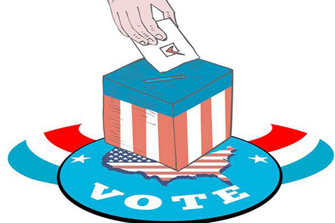
John Ross: Sluggish US economy may affect presidential election
During the G20 summit that is taking place in Osaka, Japan, the top leaders of China and the US are scheduled to meet. This was a welcome piece of good news for President Trump after a period, during which, he had been receiving bad news both on the opinion polls for his re-election and about the US economy. Naturally there are many aspects of the planned meeting that only those involved in the negotiations will know, but it is worth noting the objective pressures that are now bearing down on Trump.
2019-07-01 -

Second Russia-India-China meeting aimed at concrete trade cooperation measures
China confirmed on Monday that Chinese President Xi Jinping will attend an informal meeting with leaders from Russia and India on the sidelines of the upcoming G20 summit in Osaka, Japan. According to media reports, it was during the Shanghai Cooperation Organisation (SCO) summit in Kyrgyzstan's capital, Bishkek that Indian Prime Minister Narendra Modi pitched the idea of the second Russia-India-China meeting to Russian President Vladimir Putin. Given the three countries' respective trade tensions with the US recently, the trilateral meeting will undoubtedly attract high attention during the Osaka G20 summit.
2019-06-28 -
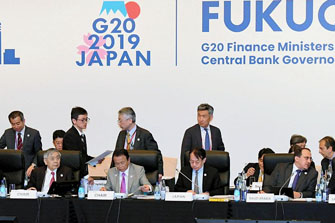
Xi to hold meetings with world leaders at G20 summit
Chinese President Xi Jinping will hold multilateral meetings with leaders of BRICS countries, trilateral talks with leaders of India and Russia as well as meetings with leaders of African countries during the G20 summit in Japan from Thursday to Saturday, Chinese officials said.
2019-06-26 -
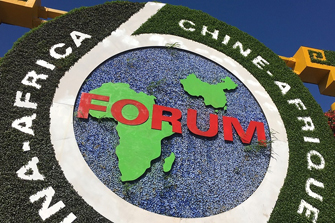
Chen Chenchen: China-Africa cooperation mirrors a historical shift amid globalization
On June 24 and 25, 2019, China is hosting a coordinators meeting as a follow-up action of the 2018 Beijing Summit of the Forum on China-Africa Cooperation (FOCAC) to review the implementation on trade, security and development. Ministerial officials from 54 African countries, together with their Chinese counterparts, are expected to release a joint declaration on the fulfilling of the consensus reached on the 2018 summit.
2019-06-26 -
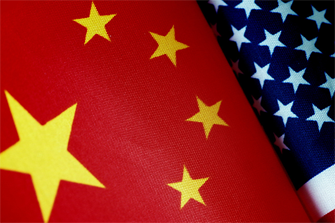
Zhao Minghao: America's 'maximum pressure' approach to China is failing
On June 24, seven weeks after the last round of trade talks, Chinese and U.S. negotiators held a telephone conversation in preparation for the upcoming meeting between the two heads of state in Osaka, Japan. However, because the Trump administration does not seem to want to change its practice of "maximum pressure" on China, it is still difficult for China and the U.S. to reach an economic and trade agreement by the end of this month.
2019-06-26 -

John Ross: Prolonged trade tension takes toll on US
Prolonged trade tension takes its toll on the United States and will hurt more severely in the future, said John Ross, former director of economic and business policy of London.
2019-06-25 -
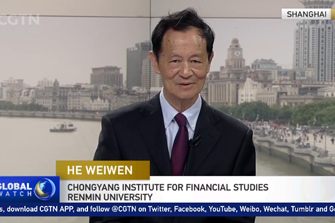
The U.S. does not treat China equally
China-U.S. trade talks are now facing difficulties because the U.S. does not treat China equally or with mutual respect, according to He Weiwen, a senior fellow at the Chongyang Institute for Financial Studies at Renmin University.
2019-06-25 -
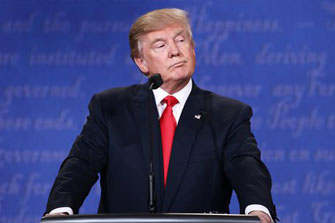
Danilo Türk: US policies can cause global recession
The US has increased trade conflict with China, and also Europe. What was the primary reason for Washington to start the trade dispute with them? Will China and Europe further expand cooperation to deal with US unilateral and protectionist behavior? Global Times (GT) reporter Lu Yuanzhi interviewed Professor Danilo Türk (Türk), former president of the Republic of Slovenia from 2007 to 2012 and a senior visiting fellow at the Chongyang Institute for Financial Studies, Renmin University of China, on these issues.
2019-06-25 -
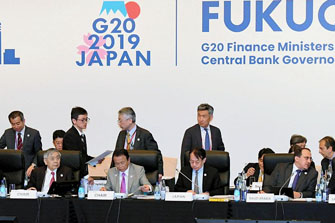
William Jones: What could we expect from a Xi-Trump meeting?
The world breathed a sigh of relief when it was announced that President Donald Trump and President Xi Jinping spoke by phone and then announced that they will be meeting on the sidelines of the Osaka G20 summit. Not only Wall Street, which quickly revived on the news, but also Main Street felt relieved. The overhanging crisis engendered by the trade dispute was felt by most people as a threat to their livelihoods. And the fact that the phone call was initiated by the White House indicated that perhaps President Trump was prepared to find a solution and would recede from his policy of “maximum pressure.”
2019-06-25 -

G20 summit intends to pull China-US ties away from brinkmanship
When Chinese President Xi Jinping meets his US counterpart Donald Trump in Japan at the end of the month they are expected to discuss a broad range of issues, including the trade war, in an effort to stop the relationship from tilting towards sustained confrontation, analysts said.
2019-06-21 -
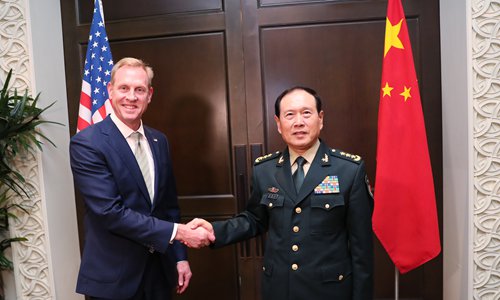
Hard-line US stance against China to continue
The new acting US Defense Secretary will continue to carry out the country's hard-line stance on China, Chinese observers said, noting that China is not afraid of any US provocation.
2019-06-20 -
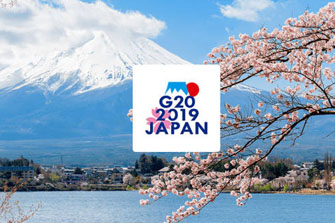
John Ross: Bad polls & bad economic data put pressure on Trump US
share markets rose sharply on news of the announcement that Presidents Xi and Trump would meet at the G20 summit – as the Financial Times simply summarised it ‘Trump plan to meet Xi on trade sends US equities sharply higher’. This was a welcome piece of goods news for President Trump after a period during which he had been receiving bad news both on the opinion polls for his re-election and for the US economy.
2019-06-20 -
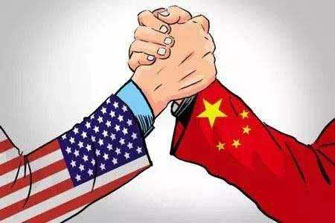
US strategy to 'increase pain' on its people
A lose-lose strategy by which the United States thinks it can inflict more economic damage on China than on itself is a very "big miscalculation" and will ultimately increase the "pain" on the people in the United States, according to John Ross, a British academic and senior fellow with the Chongyang Institute for Financial Studies at Renmin University of China.
2019-06-20 -
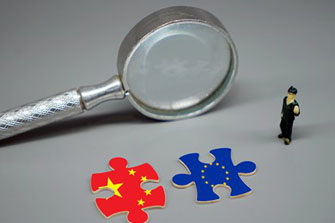
Wang Yiwei: After vote, will EU change approach to China?
Populism was given a cold shoulder in European parliament elections, lending traction to attempts at European integration. Now, important issues will receive more attention with focus moving back to climate change and data protection. In the meantime, due to disputes among populist parties and groups, it is getting more difficult for Europe to coordinate overseas policies.
2019-06-19 -

UBS removes controversial economist following outrage over racist report
UBS confirmed with the Global Times it has asked its analyst Paul Donovan to take a leave of absence as the Swiss investment bank reviews the matter that the analyst discussed China’s inflation in distasteful and racist language which sparked uproar among Chinese internet users, economists and several industry associations.
2019-06-18 -
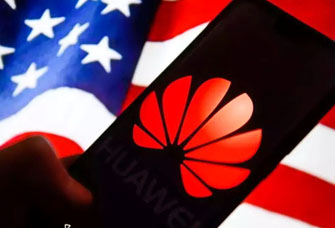
William Jones: The U.S. Could Be Shooting Itself in the Foot with Huawei Sanctions
The near-hysteria in Washington over the expansion of Huawei worldwide and its development of 5G technology has provided some much sought ammunition for politicians here in Washington with a dearth of ideas for resolving America’s economic woes, and may have some short-sighted benefit for them among a populace fearful that the direction of American society is on a downward spiral. Finding a scapegoat for the country’s dilemma apart from the powers in Washington that actually determine the fate of the nation, is always a welcome relief for those power-brokers who hold themselves above scrutiny. And preventing a competing nation from becoming an integral contributor to the vital communications networks on which the world increasingly depends is an added boon. And yet the attempt to undermine Huawei from becoming a bigger player in the world’s communications systems may in fact sabotage the growth of U.S. companies engaged in the same field.
2019-06-18 -
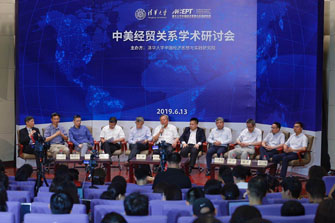
Outlook for quick solution to US-China trade war is grim
Even as US President Donald Trump appears to be pushing for a restart of the deadlocked trade talks, many experts in China remain pessimistic about a quick resolution for the escalating trade war for the US government is unlikely to make compromises.
2019-06-17
























































































 京公网安备 11010802037854号
京公网安备 11010802037854号





